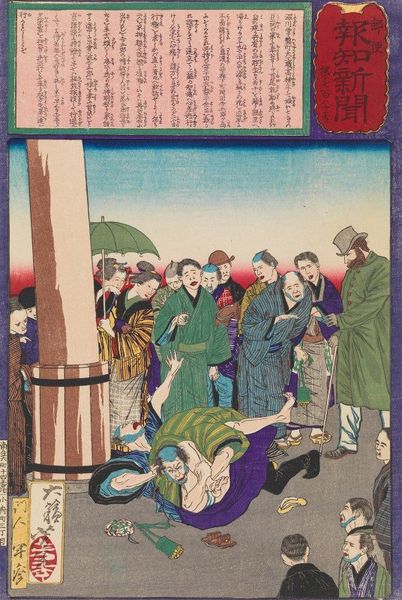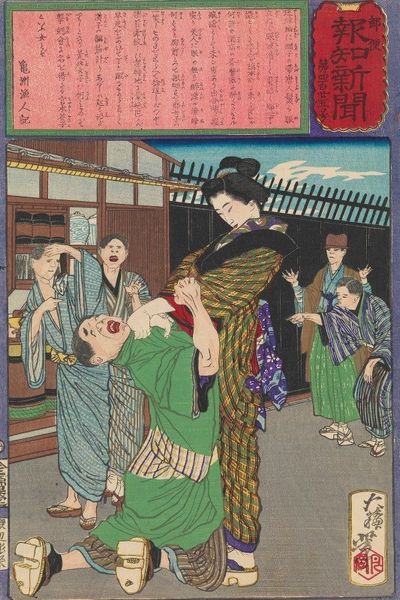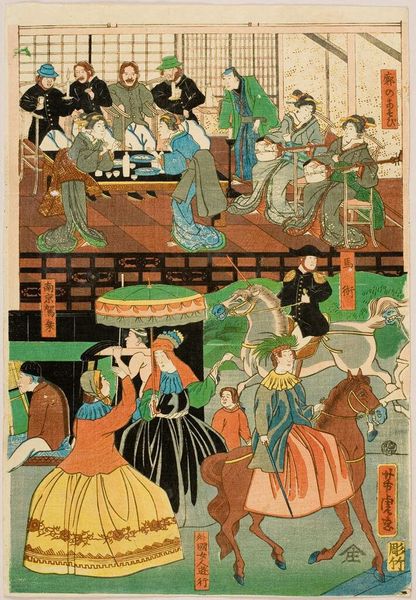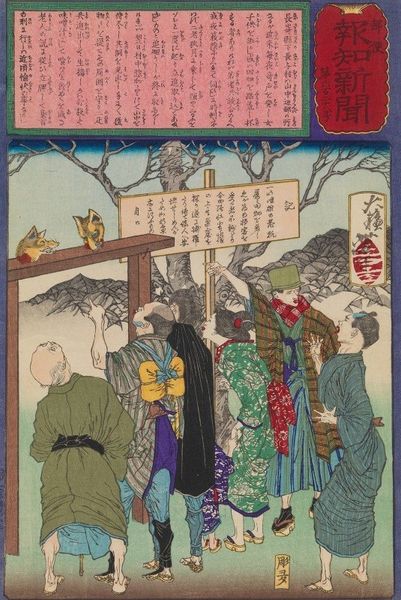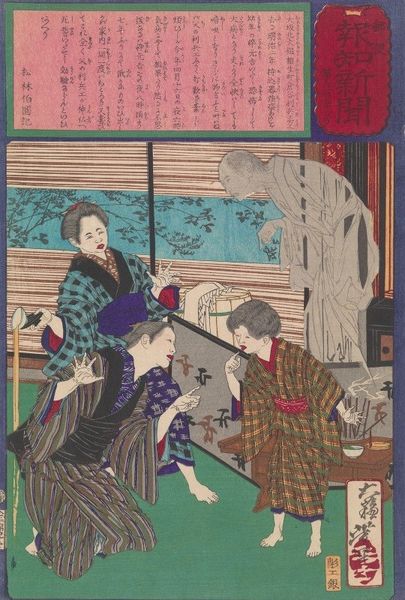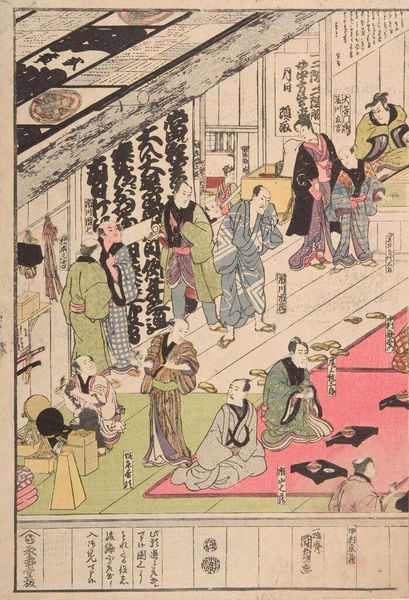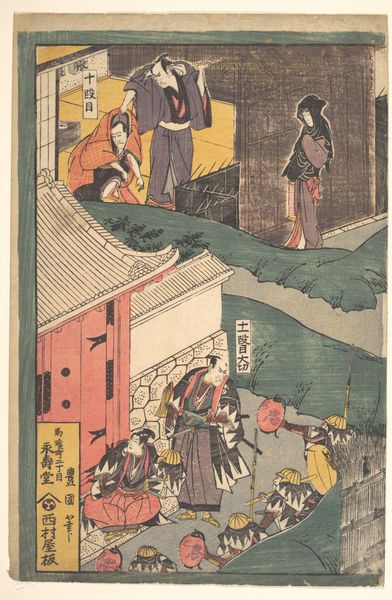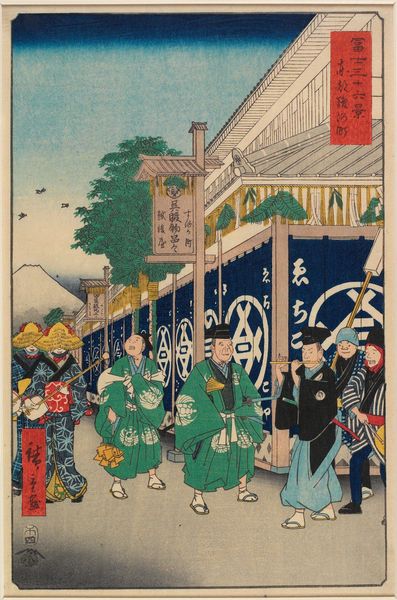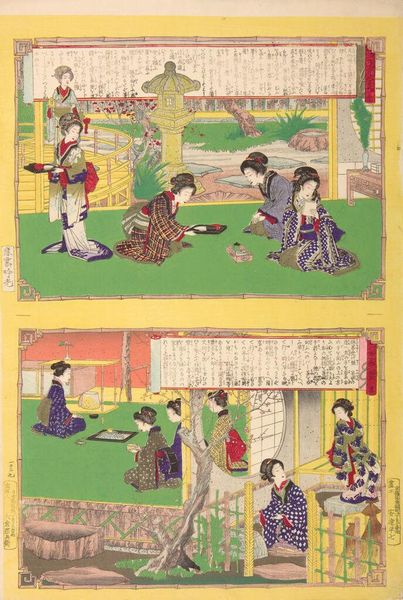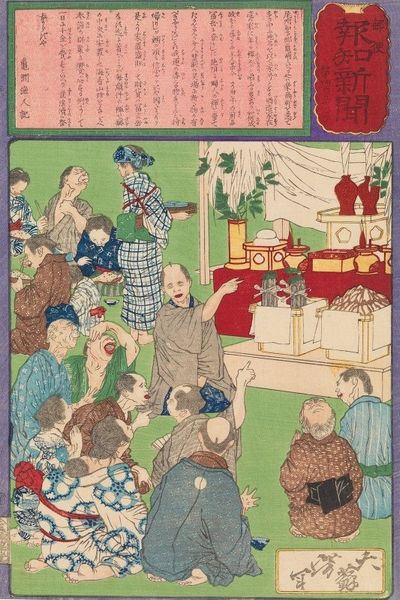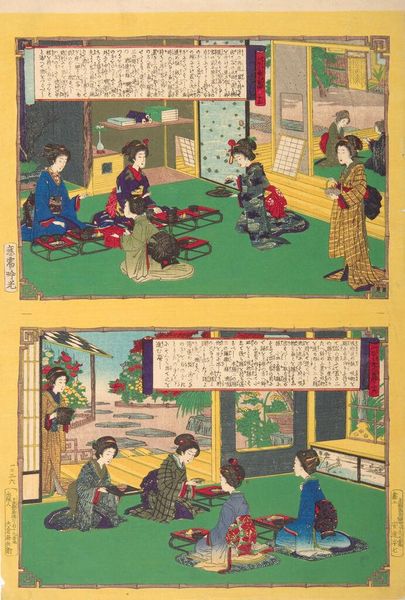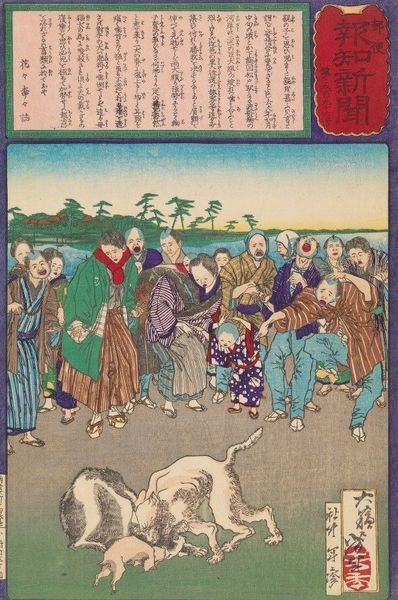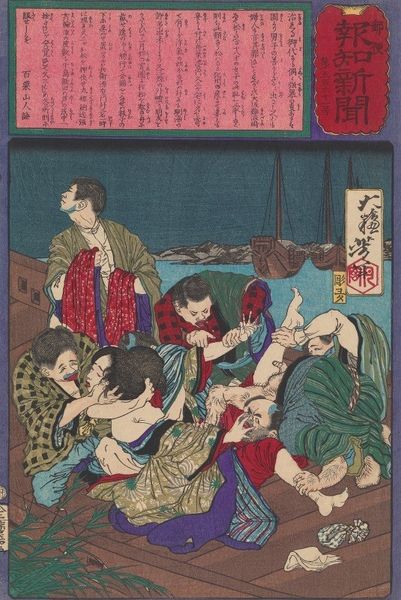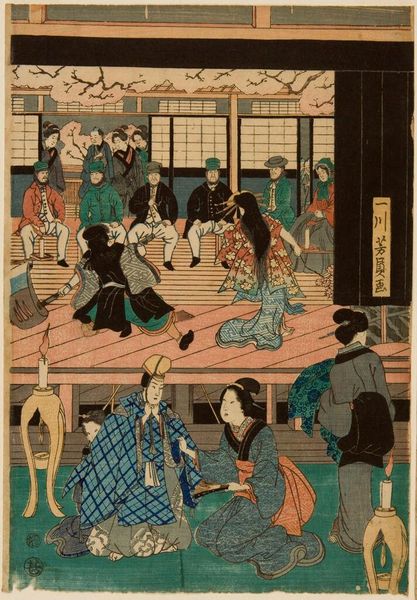
The Loyal Wife Koto Recognizes Her Long-Lost Husband as a Rickshaw Driver 1875
0:00
0:00
Copyright: Public Domain: Artvee
Editor: So, here we have Tsukioka Yoshitoshi’s woodblock print, "The Loyal Wife Koto Recognizes Her Long-Lost Husband as a Rickshaw Driver," created in 1875. It feels very dramatic, doesn’t it? The composition, with the rickshaws and the surprised expressions… What do you see in this piece? Curator: Absolutely. For me, this print speaks volumes about the social upheavals of Meiji-era Japan. Consider the rigid class structures and the economic hardships many faced. Koto's shock isn't just a personal recognition; it's a jarring collision of past and present, wealth and poverty. What does it say about gender and identity when a man is reduced to such labor? Editor: I see what you mean. So, the print is less about the romantic reunion and more about highlighting social inequality? The husband’s shame seems almost palpable. Curator: Precisely. And look at Koto. Her loyalty, highlighted in the title, is complicated. Is it genuine love, or duty upholding social expectations in this rapidly changing society? The artist presents us with layers. What's particularly striking is the vulnerability depicted; it pushes against idealized representations of the period, encouraging viewers to consider individual experiences of economic distress. Editor: It’s fascinating to think about it that way. I originally just saw a sentimental scene, but it’s much more nuanced than that. Thinking about the socio-economic factors really adds a new dimension to the narrative. Curator: Indeed. Art like this becomes a mirror reflecting not only the depicted scene, but the historical moment and its often-contradictory values. Analyzing art this way allows us to question established norms and engage more critically with the stories it tells. Editor: This makes me think about how visual media shapes our perceptions of labor, class, and identity even today. Thanks, that's given me so much to consider! Curator: My pleasure! Analyzing artwork from an activist perspective lets us connect past injustices to the present-day struggle for equality and freedom.
Comments
No comments
Be the first to comment and join the conversation on the ultimate creative platform.
